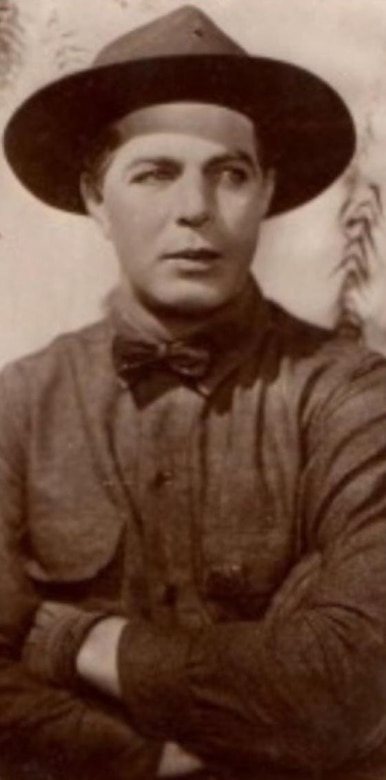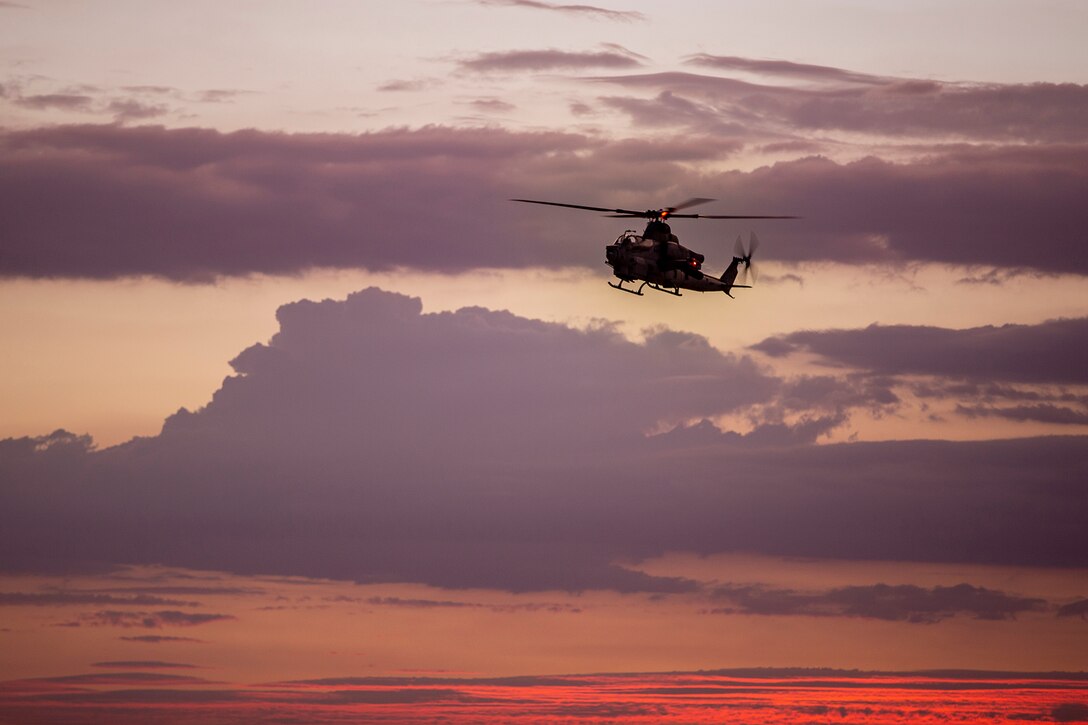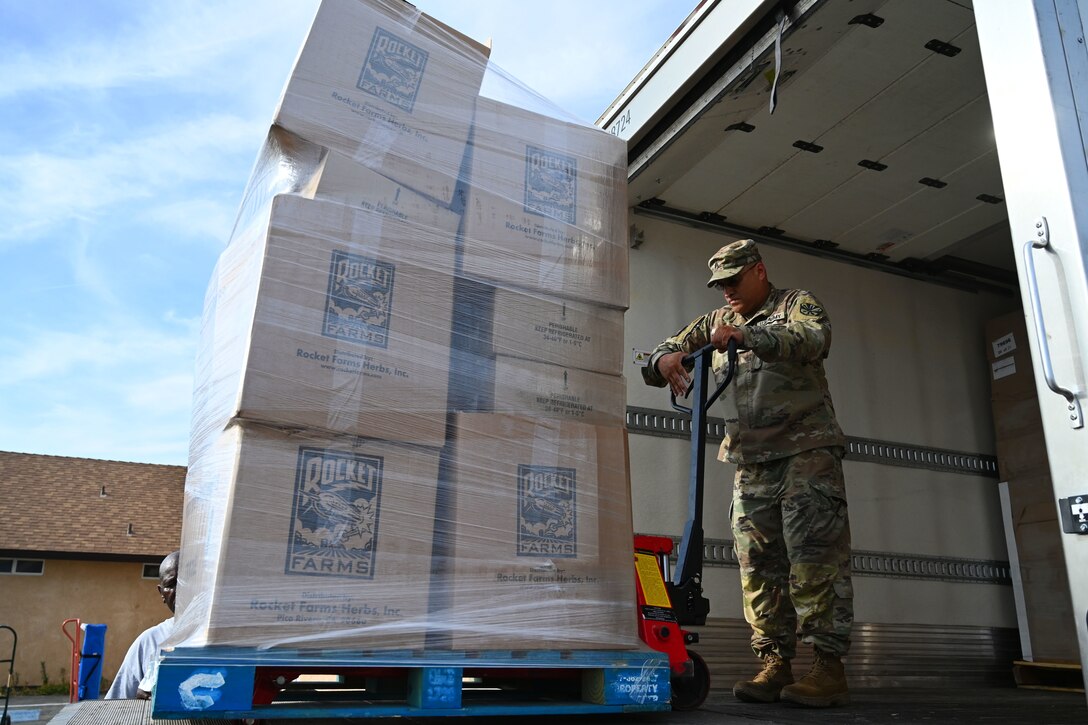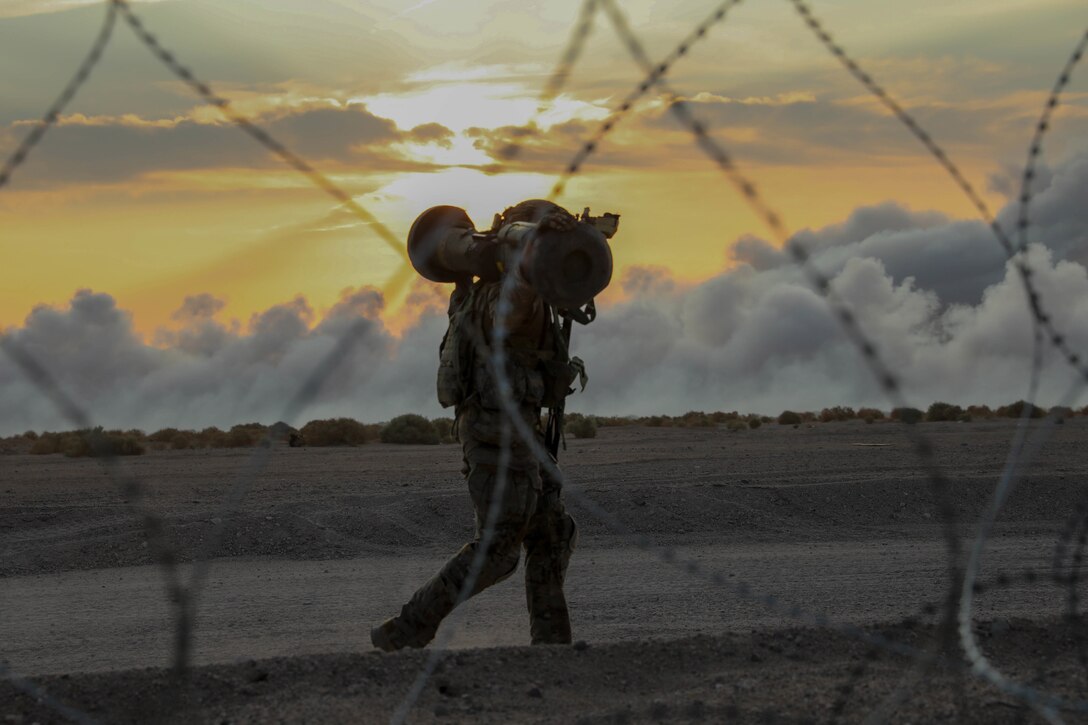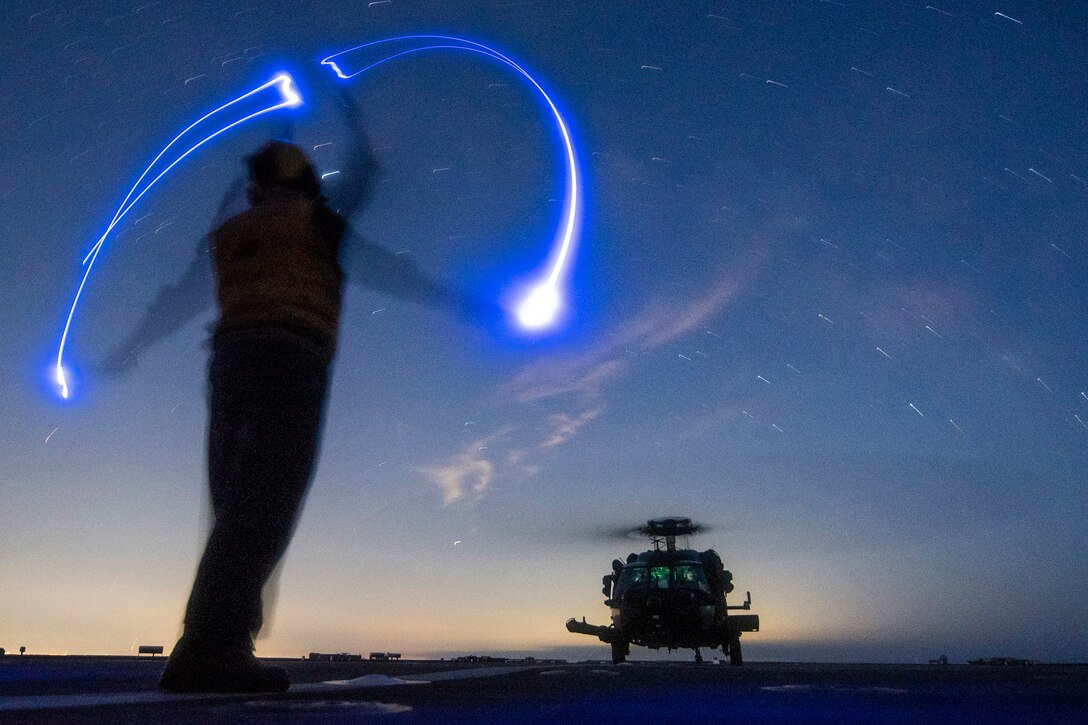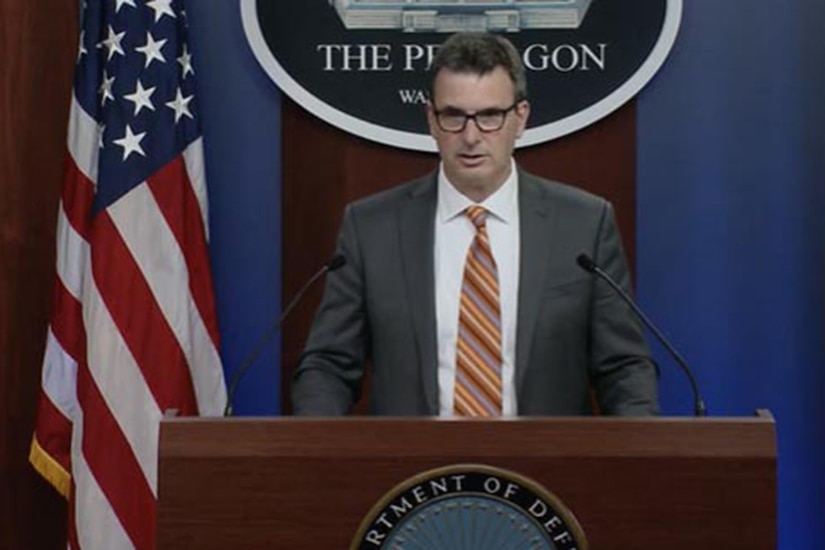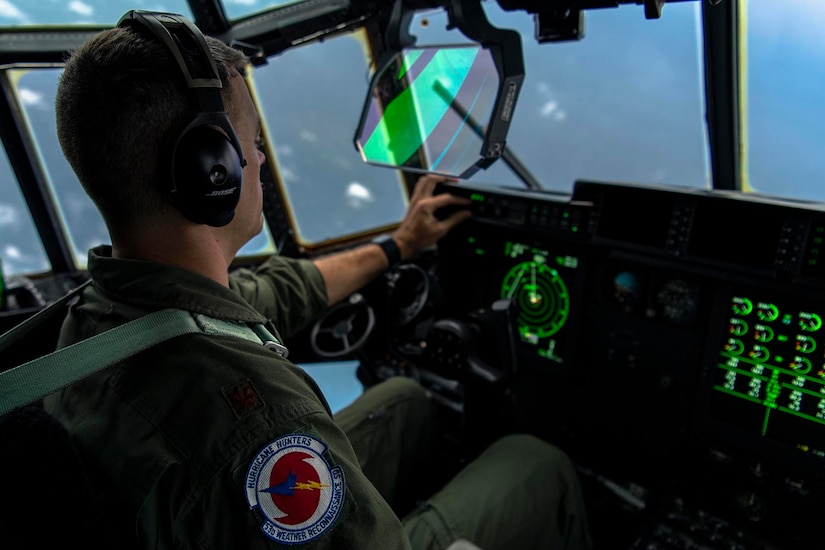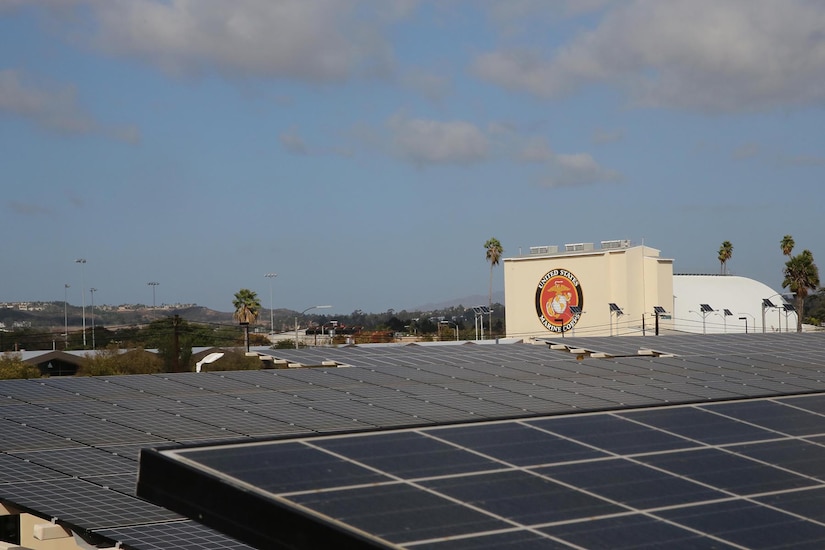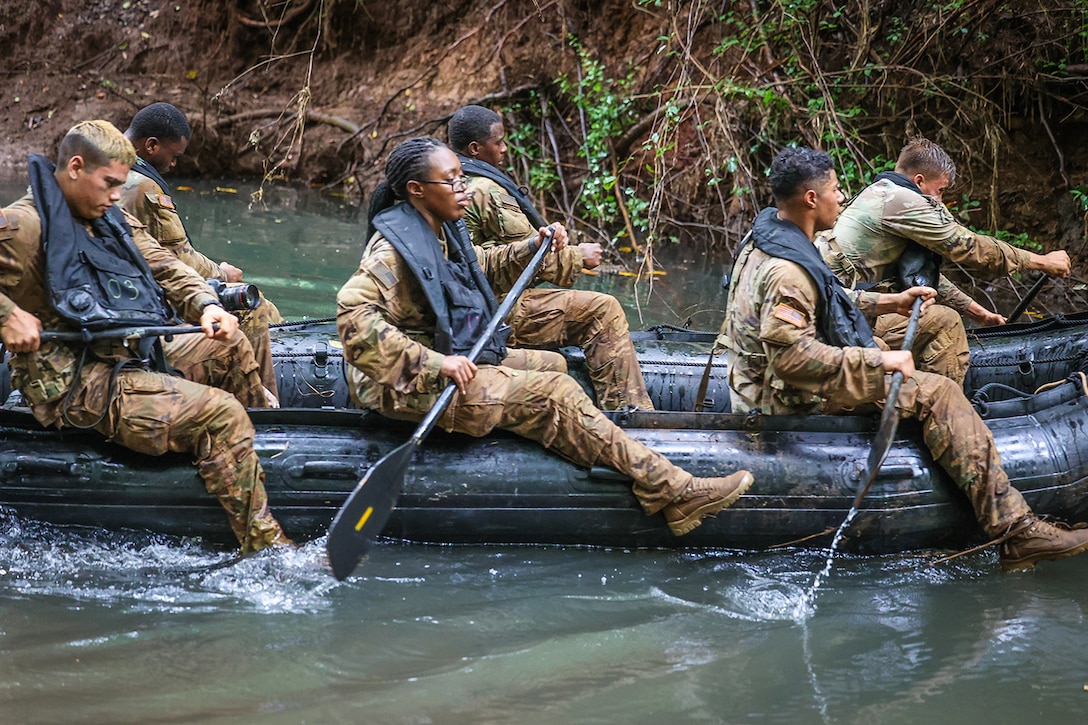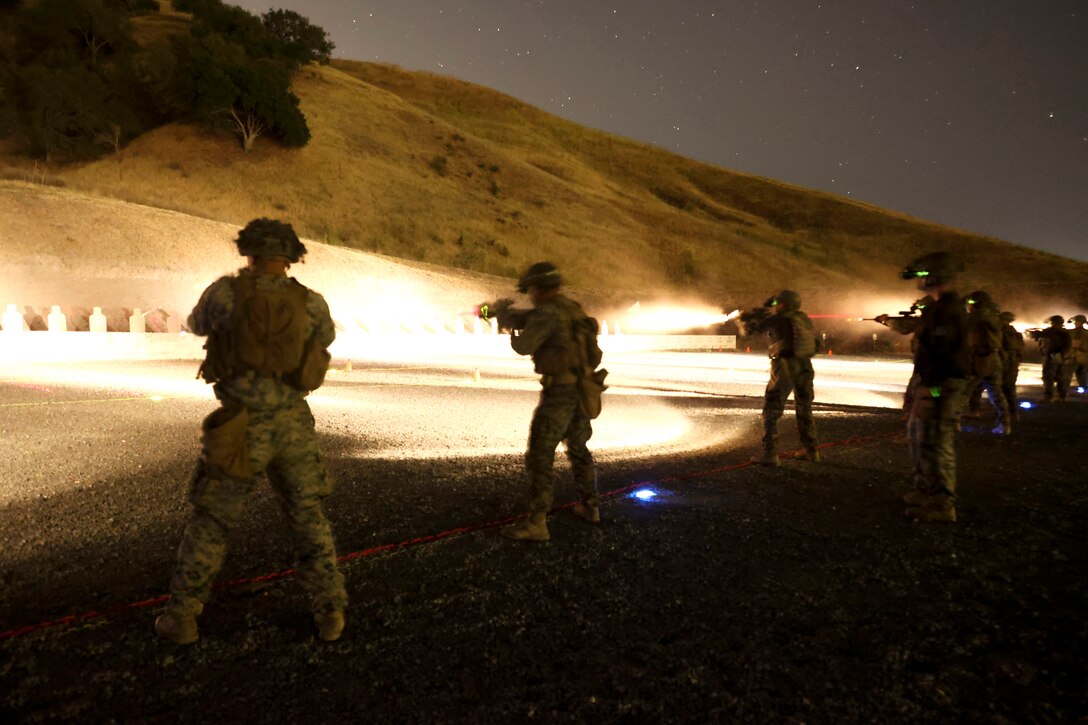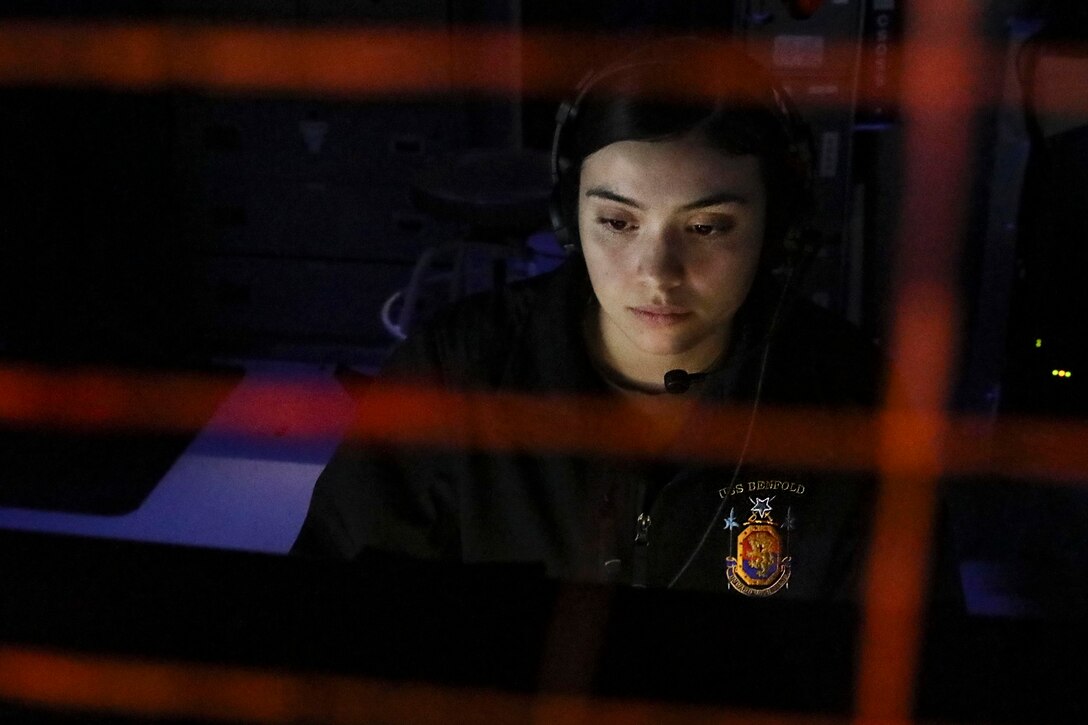Aug. 3, 2021
Pentagon Press Secretary John F. Kirby; Woody Kusse, Pentagon Police Chief
PRESS SECRETARY JOHN F. KIRBY: Good afternoon,
everybody. I know that all of you have been tracking events here off --
outside the building near the Metro entrance, an incident that law
enforcement has responded to, so I'm going to bring up Chief Woody
Kusse, the chief of police, Pentagon Police, to offer you a couple of
words at the top, and then -- and then answer your questions to the best
of his ability. As I think you know, it's still an active scene. There
is an ongoing investigation, and there is likely a lot of information
that we simply won't be able to confirm or speak to at this point. I'm
going to bring him up here in a second.
I will, if it's okay with you, actually, I'm just -- I'm going to
just -- I will moderate this, so I'll call on you. We'll do the best we
can to get as many of you -- your questions answered as we can. We have a
lot on the phone, as well. I'd ask you to please limit your follow-ups.
The -- the chief does have a meeting shortly that he's going to have to
get to, and we've got to make sure he makes it in time for that
meeting, so we'll probably keep this to 15 or 20 minutes with him, and
then I'll come back up to the podium and be happy to deal with any other
questions of the day that -- that you might have.
Okay, with that, Chief?
PENTAGON POLICE CHIEF WOODY KUSSE: Thank you, Mr. Kirby.
Good afternoon, ladies and gentlemen. This morning, at about 10:37
A.M., a Pentagon Police officer was attacked on the Metro bus platform.
Gunfire was exchanged, and there were -- there were several casualties.
The incident is -- is over. The scene is secure, and most importantly,
there's no continuing threat to our community. The FBI is on scene,
leading the investigation. And again, the Pentagon and the Pentagon
Reservation are safe and secure.
I want to thank our allied first responding agencies who came not
just to assist us, but to help protect and serve the community, our
local community, and offer my sincere thanks from the Pentagon Force
Protection Agency and the Pentagon Police to those responding agencies.
MR. KIRBY: Okay. Lita, go ahead.
Q: Chief, thanks for -- for taking our questions. We understand that a
police officer has died and that the -- that he was stabbed, and that
the assailant was, in response, the assailant was killed. Can you
confirm either of those things? And then, can you tell us, was this --
do you interpret this as an effort to get -- was an effort to get into
the Pentagon? Was this some sort of threat against -- by getting into
the Pentagon or the building, or any sort of terror-related threat?
CHIEF KUSSE: Ma'am, right now, it's an active ongoing investigation.
The information that I have is preliminary. So it continues to evolve,
and I would be providing those details at the earliest opportunity, but
right now, it's just premature. The -- the situation has been resolved,
but the investigation must continue, and I don't want to do anything
that could jeopardize the integrity of that process.
Q: You can't -- then you can't confirm the deaths of the officer or of the assailant?
CHIEF KUSSE: Ma'am, I can't compromise the -- the ongoing investigation right now.
MR. KIRBY: Courtney.
Q: Sorry, I -- I just have to say, you know, we -- we have reporters
who are outside the hospital who saw a body being taken with a heavy
police presence. There are a lot of reports that a Pentagon Police
officer. I know that this is a difficult time, and I -- my condolences
to you and your -- and your colleagues. But I mean, I don't understand
how confirming that a police officer was killed and -- and -- and
whether any others were injured would jeopardize the integrity of an
investigation.
CHIEF KUSSE: Ma'am, I completely -- I completely respect your
question. I understand, but again, it is an active, ongoing
investigation and I -- I don't want to compromise the integrity of that
process right now.
Q: Then let -- let me just ask you this, then: Do -- are there
reports that a police officer was -- was stabbed. As you mentioned, the
-- someone was attacked on a Metro bus -- that that police officer has
died from his or her wounds. Are -- are those reports incorrect?
CHIEF KUSSE: Ma'am, I'm -- I'm not confirming or denying those
particular reports right now. The investigation is ongoing, and I do
promise to get back as soon as possible with further details, but I
can't release those right now.
MR. KIRBY: Let's go to the phones. Dan Lemothe, can you hear me?
Q: Sorry, yes. Good afternoon. I'm just -- we've -- we've been
waiting for hours at this point for -- for clarification on a number of
things. Is there anything else you can add? And at this point, where is
the suspect? Do you have any sense for where he has gone? Thank you.
CHIEF KUSSE: Sir, at this time, I -- I -- I do respect that. As I
said, this is an ongoing investigation. It is still very active, and I
will provide further details at the earliest opportunity, but right now,
I can't get into those details.
MR. KIRBY: (inaudible)?
Q: Yeah, can you talk about the nature of the attack? We've been
heard -- hearing shooting, and we've heard stabbing. Can you talk at all
about that?
CHIEF KUSSE: Okay. Ma'am, those details are still being worked. The
information that we have is preliminary, and I don't want to acknowledge
or deny anything that could be erroneous. There were a number -- a
number of things, and that's why the investigation continues. I want our
investigators out there on scene working in conjunction with the
Federal Bureau of Investigation to work through those answers and be
able to provide those details at the earliest opportunity.
Q: You said several were injured, though. So there were other people besides the officer who was attacked. That's correct?
CHIEF KUSSE: There were several injuries that resulted from the incident.
MR. KIRBY: Let's go to the NBC 4, Julia?
Q: Thank you for doing this for us, and coming to talk to us. Can you
tell us, whether the officer was the intended target in this attack, or
did the officer intervene, and resulted in injuries. And then secondly,
the Pentagon Metro exit has repeatedly been the site of attacks or, you
know, intended attacks on the building. Does this latest incident give
you pause and think that maybe addition force protection measures might
be necessary at this entrance?
CHIEF KUSSE: That's a good question, ma'am. Again, I have no further
information with regard to motivation or the series of events that --
that occurred. Those are being put together as -- as we speak.
The Pentagon Metro Station is probably one of the busiest in the
transportation system. It is a hub for commuters, as well as building
occupants. There are a number of measures that we have in place out
there. Every time an incident occurs, whether it's here or anywhere else
across the nation or in the world, we do after-actions on those. We
examine them. We look for things that we can do to improve. But right
now, again, it's still pending. We will certainly, as this investigation
concludes, take another look at any measures. Our mission is -- is to
protect not just the building, but the community that we serve that
transits through that station.
Q: So you think it's possible that there'll be additional security
measures that make it more difficult for anything like this to happen at
that station?
CHIEF KUSSE: Ma'am, we would review the results of the investigation,
and we would -- we would give that due consideration. I wouldn't say
right now whether there were adequate or insufficient. We're going to
take a hard look at every -- every incident, whether it's here or
anywhere else in the nation.
MR. KIRBY: Okay, go to J.J. Green on the phone.
Q: Yeah, good afternoon. Can you hear me?
MR. KIRBY: Yep, we've got you, J.J.
Q: So sir, can you tell me how you became aware of whatever it was that took place at 10:37 this morning?
CHIEF KUSSE: The initial announcement came out as a radio call. We
all monitor the -- the frequencies and we heard the call that an
incident was -- was underway.
Q: Sir, you said that earlier, that there is no continuing threat. Does it mean that the assailant has been neutralized?
CHIEF KUSSE: Ma’am, the scene is safe and secure. The Pentagon
community and the Pentagon building itself are safe and secure. We have
no further concerns about any further continuation of this particular
incident at this time.
MR. KIRBY: Tom?
Q: Thanks, John. Thanks, Chief. At the beginning of your remarks, I
think you said -- and I want to just be clear -- that the -- the officer
was attacked by this individual. I'm not trying to put words in your
mouth but it seems like the officer was not involved with the individual
whose -- in other words, he was just attacked randomly or deliberately,
but in other words, the incident started with the officer being
attacked?
CHIEF KUSSE: I don’t have the entire chronology of if they came into
contact prior to -- again, those are the details that we're trying to
piece together right now, doing the forensics on -- on what happened at
what time and putting together a factual accounting for how that
occurred.
Q: The escalation began, then, when this individual attacked the officer?
CHIEF KUSSE: That's the first indication that -- that we had when the attack was started.
Q: Thank you.
CHIEF KUSSE: Sure.
MR. KIRBY: Okay, we've got time for just a couple more. Laura Sullivan, on the phone?
Q: Hi, John. Thanks -- thanks so much for doing this, sir. There are
now congressmen who are sending condolences about the Pentagon police
officer that has been killed. So I'm going to give it one more shot --
can you provide any information about any fallen police officers or any
injuries that happened? I mean, this is very much out in the news there.
CHIEF KUSSE: Ma’am again, I completely respect your question, I
understand the interest and I'll -- it is an ongoing investigation. I
don't want to sound like a broken record but I do pledge that we will
provide the information as soon as possible.
MR. KIRBY: Lucas?
Q: Lucas Tomlinson, Fox News. Are you looking for one suspect or are there multiple suspects?
CHIEF KUSSE: Sir, at this time, the scene is safe and secure. We
continue to investigate. We don't know about any other associations.
Q: There are reports that a suspect is on the run. Can you provide a description of that suspect?
CHIEF KUSSE: I have not heard that report, sir.
Q: So you're saying that there's not a suspect on the run?
CHIEF KUSSE: The scene is safe and secure on the Pentagon
Reservation. There are a number of people who fled and there were some
erroneous reports that are being pursued as part of the ongoing
investigations.
Q: So can you just clear up is there a suspect on the run, yes or no, Chief?
CHIEF KUSSE: We are not actively looking for another suspect at this time.
Q: And can you rule that this was a terrorist attack?
CHIEF KUSSE: It's premature sir. We don't know what the motivation was.
MR. KIRBY: Louis?
Q: Hi, sir. It sounds like this is an isolated incident. Is that how
you would characterize this right now? And if it is an isolated
incident, is it something that might prompt further security reviews in
the future?
CHIEF KUSSE: As I said earlier, sir, every time that there's an
incident, whether it's here locally or -- or anywhere else, nationally
or even internationally, we take a look at those incidents and see if
the measures that we have in place are sufficient, need to be improved.
We continually assess our -- our protective posture here -- again, not
just for the building but for the community as well.
The last time we had a significant incident on the Metro platform was March 4th of 2010.
Q: Would you call this then, an isolated incident and not something
that the general population here, in the building or on the Reservation,
needs to be concerned about for their safety?
CHIEF KUSSE: I believe, we believe, my agency, my department believe
that this Reservation, the community and the people that we serve are
safe and secure right now.
Q: Right, just want to confirm you said that the FBI is leading the investigation into this, right?
CHIEF KUSSE: Yes, sir.
Q: Okay. What -- what role is your agency doing in this, that you're
-- I mean, you're -- you're the -- obviously the agency involved. So
what -- what actual role is -- are -- are you -- is your agency doing in
this?
CHIEF KUSSE: Throughout the national Capitol region -- actually,
throughout the nation, we operate under the Incident Command System,
where we establish an incident like this with multiple responding
agencies, a unified command.
So there's -- there's one command that speaks to the member
participating agencies that are there. You can imagine the chaos if you
hadn't had an organized structure to manage an incident like this. We're
providing support on the ground, as well as familiarity with the area,
certainly securing the crime scene, helping identify and preserve
evidence, and conducting follow on inquiries or interviews with
potential witnesses.
So it's -- it's a cohesive team and we are working in conjunction
with them but the FBI has the lead for the investigation. Again, that's
part of the standing process.
Q: -- they would have the -- the -- the information about the details
of what led to the case, the circumstances of it? I mean, does --
CHIEF KUSSE: All of the participating partners of that Unified
Command Structure were provided the information that they needed. It's
shared. If there's a -- a -- a need to know, there's no hesitancy in
sharing that and it's protected.
MR. KIRBY: Terace, you'll be the last one today.
Q: Thank you. Yes, Chief, there’s stated in reports that there were
multiple injuries. Can you confirm how many were injured so far? And
then also, when I was outside, I noticed bombs -- a bomb squad and
sniffing dogs. So was there ever a concern that there may be -- there
may have been bombs placed around the vicinity as well?
CHIEF KUSSE: We are not concerned about a continuing threat but if
you can imagine, in a chaotic scene like that, we want to make sure that
that wasn't a ruse, for instance. And I don't want to get into a lot of
the tactics used but we do take other measures to ensure that there's
no continuing threat to the responders or the public. And we don't
readily acknowledge those but there's a number of things that we do that
might not appear to be directly related to the incident. It's a
precaution, it's a prudent measure that we would take.
Q: And then just a follow up, are you able to confirm how many people were injured so far?
CHIEF KUSSE: Not at this time, ma'am.
MR. KIRBY: All right, folks, we have to let the Chief go. He has a
busy day today. So Chief, thank you so much. Everyone appreciates your
time --
(CROSSTALK)
Okay, I can just get right to questions. I don't have an opening set
of comments today. So why don't we just go to whatever else is on your
mind outside the incident today?
Q: John, just number one on this, do you have anything else that you
can add from the Pentagon's point of view on this incident? Is the
Secretary back in the building? And that -- and I have a -- a separate
question.
MR. KIRBY: The Secretary is here at the building now. He was out of
the building at the time of the incident, attending a normally, weekly
scheduled meeting with the President, but he's back in the building
today. He did have a chance to visit the Pentagon Police Operations
Center when he returned to check in with them and to express his
gratitude for everything they're doing on this day, with this particular
incident.
I'm sorry, what else did you ask me?
Q: And -- no, I -- I have a second question.
MR. KIRBY: Okay.
Q: Just on a second subject -- on vaccines, has the secretary gotten
any waiver or any indication that the president's going to provide a
waiver on making the vaccines mandatory? And can you bring us up to date
on any steps that have been taken since the president announced the two
things that the Pentagon has to do, which is pursue mandatory --
MR. KIRBY: The when and the how.
Q: -- for the -- the testing process?
MR. KIRBY: The -- I don't have a specific update for you, Lita. I
think you heard the secretary address this in the Philippines on Friday.
He's not going to let grass grow under his feet.
So I think we'll have more to say in very short order here. But as of
today I don't have an additional update with respect to a decision to
move forward about making the vaccines mandatory.
The secretary obviously wants to consult medical professionals as
well as the services. And as you know, the way the process works is he
would have to request a waiver from the president to -- to waive the
emergency use authorization as the justification for making it
involuntary. So that, as far as I know, has not occurred yet.
But I, again, would point you back to what the secretary said. He's not going to let grass grow under his feet.
The Delta variant has certainly affected us here in the military as
it has affected the rest of the country. And when we have more to say
about the status of the vaccines, we'll certainly do that. I don't think
it will be very long.
Q: Right. But no waiver request?
MR. KIRBY: Not that I'm -- not -- not today, no.
Tom?
Q: Hi. Thanks, John. Two unrelated questions. One, global force posture review is still on track for the end of summer?
MR. KIRBY: I -- as I said, still on track for end of summer, perhaps
early fall. But yes, the project's ongoing and is basically on time.
Q: Second quick question, in regards to Tunisia -- the events
happening in Tunisia has it had an impact or what has been the impact on
the U.S. posture in that region -- military posture in that region?
MR. KIRBY: I know of no changes to our force posture in -- in Africa
or certainly around North Africa, Tom. This is obviously something we're
watching with concern, as you would expect us to. But I -- there's --
there's been no force posture changes as a result.
Q: Thank you.
MR. KIRBY: Yes.
Tara?
Q: Thanks, John. Just to follow up to Lita's first question, can you
give us a sense of how the secretary took the news that there had been
at attack at the Pentagon, his concerns? And then just a general overall
sense of the building toady and how you felt about the Pentagon -- the
force protection that they provide to the building.
MR. KIRBY: Great questions. On the -- on the first one, he was over
at the White House when this occurred and was informed immediately by
his staff, and kept regularly updated throughout the morning. And very
clearly was concerned about the incident, about the potential for
violence right here on the Pentagon Reservation and certainly was very
concerned about any -- any casualties that occurred.
The first priority for the secretary, and you've heard him say this
again, and again, and again, is the health and welfare of our people and
making sure that they're as safe as possible. So clearly he was
concerned about this, which is why he was regularly updated throughout
the day.
And one of the reasons that -- to your second question -- that when
he got back to the building, the first thing he did was go to the
Operations Center for the Pentagon Police to check up on them and to --
to learn more about the incident and also to thank them for the
extraordinary work that they do every single day here, hour by hour.
It's -- they are an exceptionally professional, skilled, and
courageous group of men and women who protect this reservation and the
tens of thousands of people that work here every single day. And he
certainly wanted to express that gratitude.
I should go to the phones a little bit here. Idrees?
Q: Hey, John. Could you, sort of, help me understand why you wouldn't
be able to confirm whether a police officer had been killed or not?
MR. KIRBY: Idrees, I'm really not at liberty to talk much about this
incident. I -- that's why I wanted the -- to have the chief to have the
ability to come up here and talk to it. It is -- it is an ongoing
investigation.
And the only thing I would tell you, Idrees, and just reiterate what
the chief said, we -- we know there's a lot of questions. We've seen all
the press reporting out there. We understand what's out in the
information space.
But I would say two things. We will be as forthcoming as we can be
when we can be. And the timing of -- of the way we -- we release
information, that's deliberate. So I just -- I'm not able to confirm
anything out there in the press right now. And I would just ask for your
forbearance and your patience. As we know more information and as we
get to a point where that information can be released, we'll do it.
I understand this happened this morning. I understand there's lot of
interests in what we've come to know. And as I said, as soon as we're
able to provide more information, we will. But I -- we can't and won't
just simply react to press reporting and to what anonymous officials are
out there saying. We want to be very careful here.
Pierre?
Q: Any comment from you on what's happening in the Arabian Sea? Last
week there was an attack on one ship. There seems to be another two
attacks today in the same area.
MR. KIRBY: Well, I think you've seen we've already reacted to the --
the attack last week. Central Command put out a statement about -- about
-- about what they believed was a deliberate attack on the -- on that
merchant vessel.
On the ones that you're talking about today, we've seen reports on
that. I don't have any details for you today. Again, we're looking into
reports that there were potentially additional incidents in the Gulf of
Oman. But I don't have anything more for you right now.
And again, as soon as we can say something, we -- we certainly will.
But we just don't have enough information now for me to -- to provide
much confirmation. Sorry about that Pierre.
Q: Can you confirm that all of these are these things are tied together?
MR. KIRBY: I cannot, Jim.
Q: Okay.
MR. KIRBY: I cannot.
Janne?
Q: Thank you, John. On the incident of -- did FBI verify the suspect's nationality or could you find it?
MR. KIRBY: I'm not going to speak to the investigation, Janne. I just won't. I mean --
Q: But I didn’t get the chance to ask him questions…
MR. KIRBY: I gave as many questions as I could to the chief. He has a
very busy day. But I can assure you that if you had asked him that
question his answer would have been the same as mine. We're just not in a
position to confirm much detail about this incident.
Q: Yes, I have another question; for the U.S. and South Korea joint
military exercises. How can you analyze that recent restoration of
inter-Korean communication lines will affect the U.S. ROK joint military
exercise?
MR. KIRBY: I'm sorry, how can we what?
Q: How can you analyze that? Recent reinstallations of a --
(UNKNOWN): Reinstallation --
MR. KIRBY: The restoration?
Q: Yes.
MR. KIRBY: -- of inner Korean dialogue, is that what you're talking about? We certainly --
(UNKNOWN): The phone line, it was reopened.
MR. KIRBY: Yes, I won't -- I mean that's certainly --
Q: Military hotline?
MR. KIRBY: That's certainly something for the ROK military to speak
to Janne but we obviously -- we believe and you've heard the Secretary
talk about this, that more communication is certainly better to avoid
miscalculation. What impact that communication vehicle is going to have
on training and readiness, I just can't say at this point, I wouldn't
want to speculate one way or the other. As we've talked about many
times, we believe in proper training and readiness on the Peninsula and
that all the decisions that we make with respect to training and
readiness is done in close consultation with our ROK allies.
Q: And do you know weeks after the restoration of communication
lines, Kim Yo-jong, the sister of the North Korean Kim Jong-un demanded
the suspension of the U.S. and South Korea joint exercises.
MR. KIRBY: Yes, I saw those statements. Again, I --
Q: Can you comment on that because you said that the last time you
said the U.S. and South Korea exercises demanded -- I mean determined by
coordination with the U.S. and South Korea. So how did you respond --
MR. KIRBY: I've seen the comments. Nothing has changed about our need
to be properly trained and ready on the Korean Peninsula to face a
range of threats. And everything that we're doing is designed to make us
as prepared as possible to meet those threats and we -- and we get
ready in that way and in close coordination with our South Korean
allies. I mean -- nothing has changed about the need to make sure that
we -- that we stay ready.
And just as importantly, nothing has changed about the need to
continue to consult with our South Korean allies. And we make these
decisions together.
Q: Lastly, if the South Korean government asked the United States to
suspend the U.S. and South Korea joint military exercise as North Korea
wants. Would the U.S. agree?
MR. KIRBY: What?
Q: If the South Korea asks the United States --
MR. KIRBY: I'm not going to get into a hypothetical. Again, --
Q: It's not hypothetical because when you are --
MR. KIRBY: Janne, you're asking me if the -- if the South Koreans were to ask us to stop training -- that hasn't happened.
Q: (Inaudible) answer what the King Jong-un --
MR. KIRBY: Janne, I understand. We have security commitments on the
Peninsula, a treaty that requires us to be ready to help defend the
Korean Peninsula against threats. That hasn't changed. It's iron clad.
And you heard the Secretary say that when we went to Seoul back in
March.
I'm not going to -- get into hypotheticals or speculate about if the
South Koreans want to go this way, what would we do. Everything we do
from a military perspective is done in close coordination with our South
Korean allies. It's -- we're together as we make these decisions.
Q: So what is the current status of the joint military exercise and
you know the current status of it. Are they going to be suspended or are
you--?
MR. KIRBY: I don't have any announcements to make about specific
training events. And I refer you to U.S. Forces Korea for me detail
about that. Barbara?
Q: I want to ask you about Afghanistan and the Taliban, now that it's
widely understood they are making advances against three provincial
capitals and the U.S. has acknowledge it is conducting airstrikes in
defense of Afghan forces. Can you help us understand what is the exact
U.S. military strategy with these airstrikes against the Taliban as they
pursue advances in Herat, Lashkar Gah, and Kandahar? What are you
trying to specifically achieve against the Taliban advance?
MR. KIRBY: Well we're certainly watching Taliban activity throughout
the country and the security situation remains concerning. We have the
authorities and we have the capabilities where and when feasible to
assist the Afghan forces in the field through airstrikes. And we have
acknowledged that we have and continue to conduct airstrikes in their
support.
I will not get into a rules of engagement discussion here from the
podium about how those decisions are specifically made, under what
battlefield conditions. But suffice it to say that those strikes
continue to assist our Afghan partners as they continue to try to check
Taliban advances.
I would also remind, and it's important to remember that the Afghan
Air Force itself is also conducting airstrikes in support of their
troops on the ground more than we are. So there is certainly a concerted
effort.
Q: My question is, very specific, can you describe what the U.S.
military strategy and goal is against the Taliban at this point? Not
Afghan forces but you're striking Taliban targets. What is your goal
against these Taliban --
MR. KIRBY: If you're asking me to describe why we're -- why specific
targets are hit, I won't do that. It is -- but I think I answered the
question previously by saying we still have the authorities and the
capabilities to assist the Afghans in the field where and when feasible.
And that's what we're doing to help -- but I -- to help them -- to help
them be able to check Taliban advances in the country, again, where and
when feasible.
The other thing though, Barbara, is to remember -- I mean what we're
doing in Afghanistan is still drawing down. And that draw down is
scheduled to be complete by the end of this month. And so even as we
continue to support Afghans, where and when feasible, we're also
completing our drawdown and preparing to transition to a new bilateral
relationship with the Afghan military that is largely based on over the
horizon logistical and mechanical support.
Q: When you say -- I'm sorry, but I need to ask this. When you say to
check Taliban forces; militarily what does that mean? Is that -- that
is somewhat short of defeat. What is in a military sense -- what do you
mean when you say --
MR. KIRBY: It's to help the Afghans check
Q: What does check mean?
MR. KIRBY: to stop -- their advances and to -- and to begin to
regain lost territory that the Taliban have taken. But, Barbara, you're
talking about it as a U.S. military strategy. This is an Afghan military
effort that we are supporting where and when feasible with airstrikes
-- where and when feasible. It is not a U.S. military strategy.
And this is being -- this is a really important point. This is their
country to defend, this is their military to fight with and they're
doing that. And where and when we can help them we're going -- we're
going -- we have the authorities and the capabilities to do that.
Q: But respectfully, you are putting U.S. pilots over Taliban controlled air space. So that's a U.S. military decision.
MR. KIRBY: The Taliban doesn't control air space.
Q: Pardon me, Taliban space on the ground, I apologize. You are
putting U.S. pilots over Taliban controlled territory in these areas.
So, that is a U.S. military decision. So, is it --
MR. KIRBY: Well, you -- now, you're talking about a military decision
which I'm not going to dispute, but before you were talking about a
military strategy. It is -- it is in support of an Afghan strategy to
defend their own people.
I understand the frustration there, but that's what this is. And you
have to remember that our mission in Afghanistan right now is primarily
focused on drawing our forces down in accordance with the commander in
chief's orders and transitioning to a new relationship.
Q: And I -- with great compassion to the Pentagon Force Protection
Agency today, I do have one follow-up question. And I emphasize, with
great compassion, to what they've been through today. The chief said
that he could offer few details, but that the Pentagon and the community
is safe and secure, but he couldn't explain why.
Is there anything you can tell us about how this department,
including law enforcement has come to the conclusion that the -- it is
safe and secure when you can offer us almost no details about what
happened?
MR. KIRBY: Well I'm not going to go beyond what the chief said. Barb,
that wouldn't be appropriate, except to remind you that he also said
the incident was over and it was a -- and it was a contained incident.
And that they have every reason to think, based on what they know now,
that the reservation is secure and the lockdown is over.
Yes, Sylvie?
Q: To go back to Afghanistan, today there were several explosions in a
-- in Kabul. Do you have any updates to give us about the security of
the Kabul Airport and the negotiations with Turkey?
MR. KIRBY: No, I don't have any updates on the security situation at
the airport. And we continue to be in discussions with the Turks about
what the future security situation is going to look like at the airport.
But I don't have any updates for you.
Q: But, it’s becoming urgent, Isn’t it a bit too late to negotiate?
MR. KIRBY: I wouldn't say it's too late. And I think we're all
mindful of the clock here and the fact that our drawdown will be
complete by the end of the month, which is why we are continuing to hash
out these details with the Turks.
But, Sylvie, they've already said that they're going to lead a
security effort there. There are some modalities and some details about
how that gets done and the kind of support that they need that we're
still working through.
But we have every confidence that they -- that they will lead the
security effort there at the airport. It's -- so the discussions are
ongoing, but -- and yes, we're all of course mindful of the clock.
Terace?
Q: Yes, kind of switching to a different topic on DOD's fight against
extremism. What is the protocol for new recruits as far as weeding out
extremists? And this question is related to the airman that was recently
kicked out. He joined in January, he had a white supremacist podcast
and tons of different posts publicly on social media.
MR. KIRBY: Yes.
Q: And yet he was still able to join and it wasn't until a few months
later that it was discovered that he made these posts. So, does -- what
is the protocol and does that include searching people's social media
accounts before they're allowed to actually enlist?
MR. KIRBY: Well, as you know, the working group is wrapping up their
work. They'll have some recommendations for the secretary in terms of
how we assess, and I mean assess as in bring in recruits into the
military, and what are appropriate measures of vetting for them.
And until they, you know, sign and agree to begin this enlistment
process, I mean they're private citizens. So there are limits to what we
can do. But again, the working group is working all that through and
they'll present the secretary some recommendations.
The only thing I would say is, you know, we're mindful that we have a
responsibility to make sure those who are coming in can live up to the
oath that we expect them to take, to defend the Constitution and the
values and the ethics that go into that.
We have a responsibility to make sure when you come in that you can
meet that obligation, that moral obligation that you make. Likewise, we
have an obligation to make sure that those who are in can continue to
meet those obligations throughout their length of their service.
And then we know because many of these groups want to recruit former
military or even sometimes active military into their ranks that we also
have an obligation as people get ready to transition out and become
veterans, because we produce veterans, to make sure that we -- that we
inform them appropriately about what's out there and who might be
looking for them and for their skills. So, it's really right from the
beginning to the end of someone's experience with the military that we
know we have some obligations here.
And again, I don't want to get ahead of the working group in
recommendations that they might make, but we're all mindful of that,
that there is an attraction from some of these groups to people with
military experience.
Q: When is this deadline that they're supposed to be submitting their recommendations?
MR. KIRBY: I don't have a specific deadline. I think -- I mean, the
work is largely wrapped up and it will be going to the secretary
relatively soon. Yes. Let me go back to the phones here. I haven't done
this very well. J.J.?
Q: Yes, thank you for taking this question. I wanted to ask you about
Afghanistan again. The president seemed to blame the Taliban's
increases in territory on the U.S.'s decision to leave, and the process
of leaving.
It seems to me that either he's got the wrong idea about what's
happening or he's not happy about it. So, just wondering what your
thoughts are, what you can share with us about being on the same page
with the Afghans here.
MR. KIRBY: I believe we've been working very hard and you've heard
President Ghani talk about this many times, that he understands
President Biden's decision and that he also understands and appreciates
the president's commitment to continue to have a strong relationship, a
bilateral relationship with the Afghan National Defense and Security
Forces, which will be different in nature than it has been for the last
20 years, but that doesn't mean that it goes away.
We're not walking away from the Afghan forces or our ability to
support them. It's just that the support we'll be providing will be
different. And I believe that President Ghani understands that well.
Certainly everybody here at the Department of Defense understands what
the president's order means and what it requires of us.
Dan Lemothe? I guess we lost Dan. Tony?
Q: Hi John can you hear me?
MR. KIRBY: Yes, sir.
Q: CENTCOM -- I have a question about the Mercer Street attack from
last week. CENTCOM in its July 30 release said that the initial
indications clearly point to a UAV style attack. My question to you is
this, are there any new indications that it was indeed a UAV style
attack? And how strong are the indications are that the drone was
actually launched by Iranian forces?
MR. KIRBY: I don't -- I don't have anything -- there's no new
indications, Tony. We certainly support CENTCOM's assessment that it was
a drone attack and keeping with the kinds of drone attacks we've seen
coming out of Iran. I don't have -- and as for a specific attribution, I
don't have anything to go beyond what CENTCOM has already said.
Q: What role would the Pentagon have in a coordinated response that Secretary Blinken mentioned the other day?
MR. KIRBY: I think, again, I don't want to speak for the Secretary of
State but a coordinated response doesn't necessarily have to be a
military response. Obviously -- and I won't get ahead of decisions or
specifics about what a coordinated response would look like but we have
significant security commitments in the region.
We are certainly mindful of the threats that Iran continues to pose,
which is why we have a robust presence in the Middle East and in the
Central Command area of responsibility. And certainly we will do what we
need to do to protect our forces and protect our interest but beyond
that I won't speculate.
Q: Okay. Thank you.
MR. KIRBY: You back there.
Q: Thanks for taking my question. Regarding the attack this morning,
can you rule out that the joint terrorism task force is involved in the
investigation?
MR. KIRBY: I don't have any details on the investigation to -- to talk to you today.
Q: All right. And then my follow-up question is on the National
Guard, during the -- the sort of peak of the COVID crisis in Europe, the
National Guard sent people over to help in the response.
And one of the places that they did that was in Poland and then
Poland later sent some of their experts back on pulmonary care back to
New York -- to places in New York or maybe it was Chicago. I'm sorry, I
misspoke.
And they helped solve some of the pulmonary issues that were being --
that were challenges for some of the critical patients. Does this speak
to some additional bonus that comes with the National Guard being
involved in some of these incidents in your view or is that just kind of
an extra that happens sometimes?
MR. KIRBY: Our national guard are incredibly talented skilled
professionals across a range of capabilities and I -- as you saw they
were very deeply involved in efforts throughout the country to help get
Americans vaccinated and they certainly can play a role in helping with
allies and partners as well.
This is a whole of government effort. You talked about the National
Guard. It's a whole of government effort. When we were overseas just
last week the Secretary was able to announce additional vaccine
donations to countries like Vietnam. And we are very much, in the
Department of Defense, dedicated to leaning in as much as we can.
I mean you've got a virus here, which has killed upwards 600,000
Americans. That's a huge threat. And from the moment Secretary Austin
came into office, he took that threat seriously and we've been leaning
into it. And the National Guard has been a critical part of that.
Caitlin?
Q: Yes. Today the chief of naval personnel said that there are --
he's considering -- sorry. He's considering putting promotion packages
back together with photos because data suggests that it was actually a
less diverse force when they made the Pentagon, the promotion review
boards blind. Is the secretary aware of that? Would he consider making
that mandatory for all of forces because of the diversity inclusion
decision or would that just be up to the branches?
MR. KIRBY: I -- I don't know if the secretary is aware of this --
these comments by the chief enabled personnel. I mean I -- I can
certainly ask to see if he's -- if he's saw those comments. Clearly the
promotion system is run by the services.
So I wouldn't speculate now the degree to which the secretary might
get involved in something specific as photographs except to say that as
he said many times that a diverse force makes us a more ready force and
the secretary is committed to making sure that diversity inclusion and
equity throughout the Department of Defense is something we all take
seriously to include the growth and development of leaders.
And he's talked about that very publicly that at the senior leaders'
level. We are not as diverse as the rest of the force so there's a lot
of work to be done. And I -- again, without speaking to these proposals,
the secretary has reiterated numerous times to service leadership that
he wants to be open minded about additional solutions, additional ways
to increase and to improve diversity, inclusion throughout the force and
that he wants them to think creatively about that. I think I've got
time for a couple more. Yes.
Q: Thank you. I got a quick question about the South China Sea. The
U.K. is sending an aircraft carrier strike group to the South China Sea
and Germany and India will also deploy their warships to the South China
Sea in the near future.
Is that a part of the U.S.-led initiative to address China's maritime
expansion? Do you think that deployment of warships by those countries
could contribute to changing the course of China's behavior in the South
China Sea?
MR. KIRBY: I think what you're seeing is many other nations realizing
the challenges posed by China in the South China Sea. And as the
secretary described it in Singapore, they're illegal claims. And these
are concerns that it's not just -- not just that the United States has
but other countries.
And I think you see they're acting on those concerns. But these are
-- these are sovereign national decisions they're making and -- and
again, I think in keeping with the spirit of international law and in
making sure that there is a rules based order that everybody is applying
to.
So I think what you're seeing here is an increasing sense of
awareness and concern about China's claims in the South China Sea by
other nations. Okay. I already got you. I'll take on more.
Q: South China Sea?
MR. KIRBY: Okay.
Q: Can you talk a little bit about how that might be needed -- some
additional coordination might be needed if we're going to have several
nations responding?
MR. KIRBY: It's not -- if -- well, I don't know about coordination. I
mean we're obviously in close consultation with our allies and partners
and then we were just there in the region for a whole week talking to
allies and partners in the region. But I think again what you're seeing
is a growing international concern here about what China is doing in the
South China Sea. Okay. Thanks everybody.


